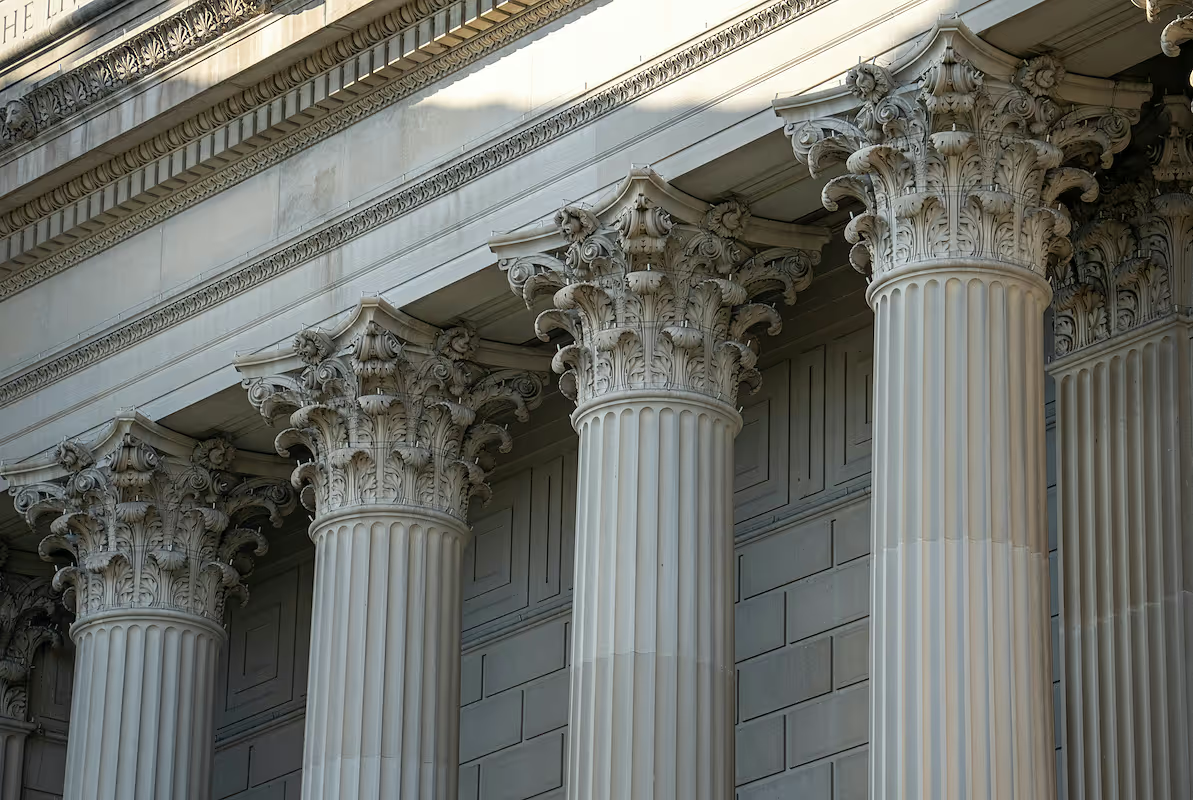
Kudos has partnered with CardRatings and Red Ventures for our coverage of credit card products. Kudos, CardRatings, and Red Ventures may receive a commission from card issuers. Kudos may receive commission from card issuers. Some of the card offers that appear on Kudos are from advertisers and may impact how and where card products appear on the site. Kudos tries to include as many card companies and offers as we are aware of, including offers from issuers that don't pay us, but we may not cover all card companies or all available card offers. You don't have to use our links, but we're grateful when you do!
Does a Public Record Affect Your Credit Score?
July 1, 2025


Quick Answers
Most public records, including civil judgments and tax liens, have been removed from credit reports and no longer directly impact your credit scores.
Bankruptcies are a notable exception, as they remain on your credit report for seven to ten years and can significantly lower your score.
Lenders may still discover public records through separate background checks, which could influence their decision to extend credit, even if the record isn't on your credit report.
What Is a Public Record?
A public record is any information documented and stored by a government entity that is, by law, open to public access. These records encompass a wide range of information, including court documents, property deeds, and vital records like birth and marriage certificates. The primary purpose of maintaining these records is to provide transparency in governmental and legal affairs for all citizens.
Certain types of public records, especially those pertaining to financial obligations, can be included in an individual's credit report. Specifically, items such as bankruptcies, tax liens, and civil judgments are often reported to credit bureaus. Consequently, this information becomes a factor in calculating a credit score, offering lenders a more complete picture of a person's financial responsibilities.
How a Public Record Can Affect Your Credit Score
While most public records no longer appear directly on your credit report, the financial obligations behind them can still significantly impact your score if they lead to collections or bankruptcy.
- The Initial Obligation: The process begins with an unpaid financial obligation that becomes a public record, such as a court-ordered judgment or a tax lien filed by the government for unpaid taxes.
- Debt Escalation: If you fail to pay the amount owed, the creditor or government agency may sell the debt or assign it to a third-party collection agency to pursue payment more aggressively.
- Reporting to Bureaus: The collection agency reports the unpaid debt to the major credit bureaus—Experian, Equifax, and TransUnion. This action adds a new, negative tradeline to your credit reports.
- Credit Score Damage: The appearance of a collection account will almost certainly lower your credit score, often significantly. Payment history is the single most important factor in calculating credit scores.
- Long-Term Impact: This negative mark will remain on your credit report for up to seven years, making it more difficult and expensive to obtain new loans, credit cards, or mortgages.
How Much Will a Public Record Affect Your Credit Score?
The exact impact of a public record on your credit score can vary. Several factors determine how significantly your score might drop, including the following considerations.
- Type of public record: Different public records carry different weights. A bankruptcy filing, for instance, typically has a more severe and lasting impact on your credit score than an unpaid civil judgment.
- Your credit history: The overall health of your credit profile matters. Someone with a long, positive credit history may see a smaller drop than a person with a newer or already damaged credit file.
- Credit scoring model: Not all credit scores are calculated the same way. Newer models like FICO 9 and VantageScore 3.0 and 4.0 no longer include tax liens or civil judgments, lessening their impact.
How You Can Avoid a Public Record Affecting Your Credit Score
Settle Debts Promptly
The most effective way to prevent negative public records is to pay your debts on time. This helps you avoid legal actions like civil judgments or liens, which could have historically appeared on your credit report and damaged your score. Timely payments are crucial.
Review Your Credit Reports
Regularly check your credit reports for inaccuracies, including public records that shouldn't be there. You have the right to dispute any errors with the credit bureaus to have them investigated and removed, protecting your score from being unfairly impacted by false information.
Understand Reporting Changes
Be aware that major credit bureaus have stopped including most civil judgments and tax liens on credit reports. While bankruptcies still appear, this change significantly reduces the direct impact of many public records on your credit score, offering a layer of protection.
Ways to Improve Your Credit Score
Improving your credit score is a marathon, not a sprint, but with consistent effort, it's always possible to make positive changes. While meaningful improvements can take a few months, employing proven methods will put you on the right track.
- Monitor your credit reports. Regularly check your reports to catch and dispute any inaccuracies or signs of identity theft that could be dragging down your score.
- Set up automatic bill payments. Your payment history is the single biggest factor in your credit score, so ensuring every bill is paid on time is a critical step.
- Lower your credit utilization ratio. Aim to use less than 30% of your available credit, as this shows lenders you aren't overextended and can manage your debt responsibly.
- Become an authorized user. Being added to the account of a responsible cardholder can help you build a positive credit history by leveraging their on-time payments and low utilization.
- Diversify your credit mix. Lenders like to see that you can successfully manage different types of credit, such as credit cards and installment loans like a mortgage or auto loan.
- Limit hard inquiries. Applying for too much new credit in a short time can temporarily lower your score, so space out your applications and use prequalification tools when possible.
The Bottom Line
While most public records no longer appear on credit reports or directly impact scores, lenders can still access this information, which may influence their decisions on loan applications.
Frequently Asked Questions
How long do public records stay on your credit report?
Most public records, such as bankruptcies, can remain on your credit report for seven to ten years, depending on the specific type of record.
Can a public record be removed from my credit report?
If a public record is inaccurate, you can dispute it with the credit bureaus to have it removed. Accurate records, however, must remain for their designated period.
Do all public records affect my credit score?
No. Since 2018, civil judgments and tax liens are no longer included on credit reports. However, bankruptcies are still reported and can significantly lower your score.
Unlock your extra benefits when you become a Kudos member

Turn your online shopping into even more rewards

Join over 400,000 members simplifying their finances

Editorial Disclosure: Opinions expressed here are those of Kudos alone, not those of any bank, credit card issuer, hotel, airline, or other entity. This content has not been reviewed, approved or otherwise endorsed by any of the entities included within the post.



































.webp)







